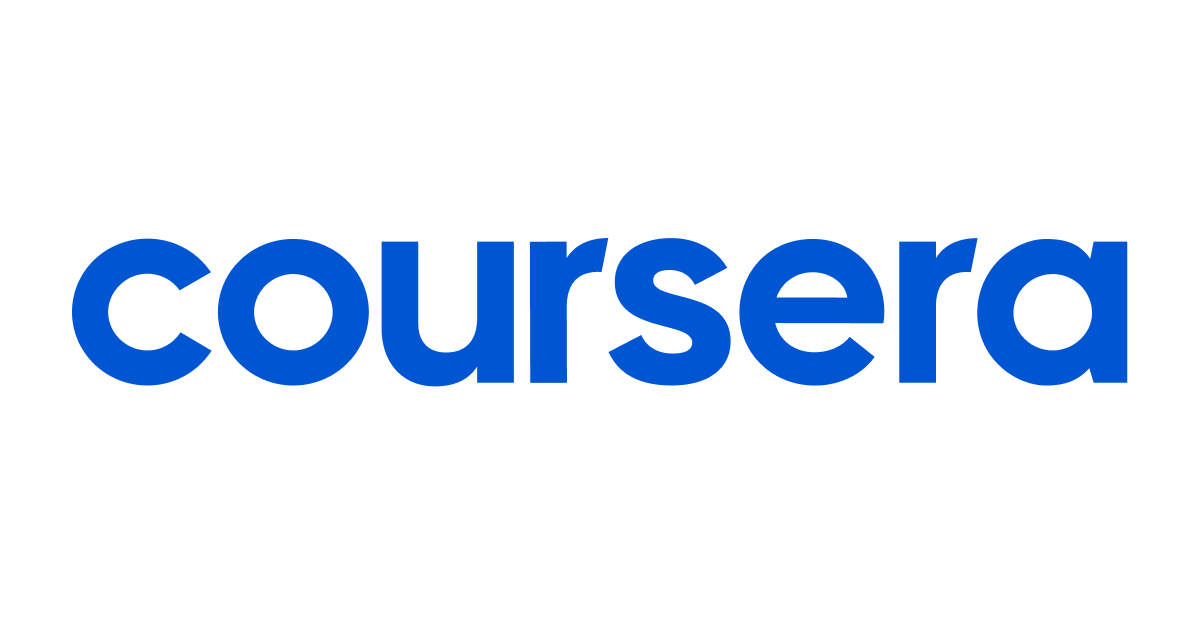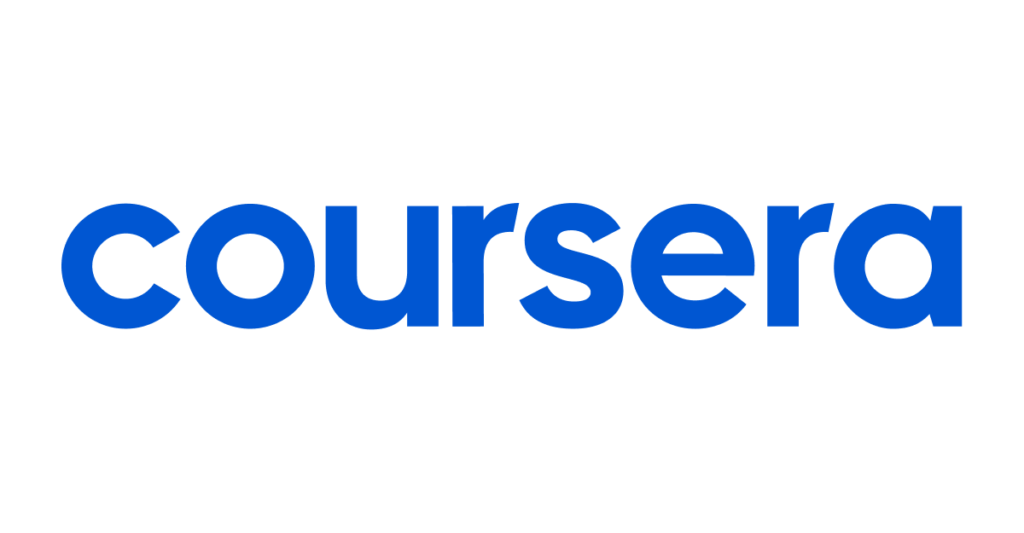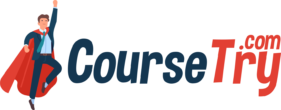
Are you itching to learn new skills and boost your career but worried about the cost? Fear not, my friend, because Coursera has got you covered! This online learning platform offers a wide range of courses and specializations that won’t break the bank. And the best part? You can earn certificates to showcase your newfound knowledge and skills!
But hold on, how much does a Coursera course or certificate actually cost? The answer is in this guide! Keep reading to learn more.
Contents
- 1 What is Coursera
- 2 Benefits of Coursera Compared to Traditional Education
- 3 Drawbacks of Coursera Compared to Traditional Education
- 4 How Much Does Coursera Certificate Cost
- 5 Types of Courses You Can Find on Coursera
- 6 Things To Prepare When Enroling A Course In Coursera
- 7 Is Coursera Worth It?
- 8 Final Words
- 9 Frequently Asked Questions
What is Coursera

Coursera is an online learning platform that offers courses and educational programs from top universities and organizations all around the world. Coursera was started in 2012 by two computer science professors from Stanford University with the goal of making quality education available to everyone. With Coursera, you can take courses in a wide range of subjects, from computer science and business to the humanities and social sciences. There are both free and paid courses available, and you can earn certificates and even degrees from some of the top institutions in the world.
One of the great things about Coursera is that it allows you to learn at your own pace and on your own schedule. You can access course materials from anywhere at any time, and you can interact with other students and instructors from around the world.
Whether you’re looking to improve your job prospects, learn a new skill, or just expand your knowledge, Coursera is a great resource to help you achieve your goals. Coursera is changing the way we learn and making education more accessible and affordable for everyone. It has thousands of courses and millions of users all over the world!
Benefits of Coursera Compared to Traditional Education
✤ Flexibility
With Coursera, you can learn on your own terms. No more rushing to make it to class on time or rearranging your schedule to fit into a rigid academic calendar. With 24/7 access to course materials, you can learn at your own pace and on your own schedule. This means you can balance your studies with work, family, and other commitments, making it easier to pursue your educational goals without sacrificing other important aspects of your life.
✤ Affordability
Traditional education can be expensive, but Coursera courses are a more affordable alternative. You can save money on tuition, textbooks, and other fees associated with traditional education. Plus, you won’t have to pay for commuting, room and board, or other expenses that come with attending a brick-and-mortar school. Coursera courses offer a cost-effective way to learn new skills and advance your career without breaking the bank.
✤ Variety of courses
Coursera has a wide variety of courses and specializations that cover a wide range of topics, from data science to graphic design and business management to psychology. This means you can explore your interests, learn new skills, and pursue your passions without limiting yourself to a narrow curriculum. With Coursera, you have access to an ever-expanding catalog of courses that will keep you engaged and excited about your learning journey.
✤ Access to top instructors
Coursera teachers are experts in their fields, and many of them are professors at top universities. You’ll have the opportunity to learn from some of the best minds in the world and gain insights and perspectives that you might not find anywhere else. These teachers love what they do and have a strong commitment to helping you do well on your learning journey.
✤ Interactive learning
Coursera offers a range of interactive tools and resources that make learning engaging and fun. Coursera gives you an immersive learning experience with quizzes, peer assessments, discussion forums, and virtual labs that let you actively engage with the material and use what you’ve learned in real-world situations. This means you’ll be able to retain information better and apply it to your life and work.
✤ Global community
Coursera courses bring together a diverse group of learners from all over the world. You’ll have the chance to talk to and work with people from different cultures, backgrounds, and points of view. This can help you learn more and broaden your horizons. Plus, you’ll have access to a global network of learners, instructors, and professionals that can help you make new connections and advance your career. With Coursera, you’ll be part of a vibrant and supportive community that will help you achieve your educational and professional goals.
Drawbacks of Coursera Compared to Traditional Education

◈ Lack of Interaction
One of the major drawbacks of Coursera is the lack of interaction between students and instructors. In traditional education, students have the opportunity to ask questions and participate in discussions with their instructors and classmates, which can help them gain a deeper understanding of the subject matter.
But because Coursera courses are self-paced and online, students may feel alone and cut off from the process of learning. It’s like trying to have a conversation with a robot. Sure, you can ask it questions and it will give you a response, but it’s not the same as talking to a real person, who can provide more context and engage with you on a deeper level.
◈ Limited Feedback
Another downside of Coursera courses is the limited feedback students receive. In traditional education, teachers can give immediate feedback on homework and tests, which helps students figure out what they need to work on. But most Coursera courses use automated feedback, which may not be as detailed or personalized as feedback from a human instructor. It’s like getting a report card from a machine. Sure, it will tell you how you did, but it won’t provide any guidance on how to do better next time.
◈ Limited Social Interaction
Social interaction is an important part of learning, but Coursera courses can make it hard to do so. In traditional education, students have the opportunity to build relationships with their peers and collaborate on projects, which can help them develop important skills such as teamwork and communication. However, with Coursera courses being online, students may miss out on these opportunities and feel like they are learning in a vacuum. It’s like trying to dance alone in your bedroom. Sure, you can bust a move, but it’s not the same as dancing with a partner who can help you improve and have fun together.
◈ Limited Hands-on Experience
Some subjects, such as science or engineering, require hands-on experience to truly understand the subject matter. Coursera courses may not provide the same level of hands-on experience as traditional education, which can limit students’ understanding of the subject matter. For example, it’s one thing to watch a video on how to dissect a frog, but it’s another thing entirely to actually do it yourself. Students can interact with the material in a more tangible and memorable way when they do things with their hands. This can help them remember the information better.
◈ Lack of Credential Value
When you finish a Coursera course, you can get a certification, but it may not be as valuable as a traditional degree or certification from an accredited school. This can limit students’ job prospects or further educational opportunities. It’s like having a participation trophy. Sure, it’s nice to have, but it may not hold the same weight as an award that you can earn through hard work and dedication.
◈ Technical Issues
Finally, like any online platform, technical issues can arise that disrupt the learning experience. Coursera courses may require a stable internet connection and working technology, which can be a problem for some students. It’s like trying to watch a movie on a scratched DVD. Sure, you can see some of the movies, but it’s not the same as watching them in high definition without any glitches or interruptions. Technical issues can be frustrating and detract from the learning experience, which can be discouraging for students.
How Much Does Coursera Certificate Cost
When it comes to Coursera certificates, the price tag can vary depending on the course and the type of certificate you’re after. If you’re just looking to learn for fun, there are plenty of free courses to choose from. But if you want to earn a certificate to show off your new skills, you’ll need to shell out some cash.
Certificate prices usually fall within the range of $39 to $99 USD per course. It may not be cheap but think of it as an investment in yourself and your future. Plus, you can often get financial aid to help cover the cost. If you’re really serious about learning and want to take your skills to the next level, you might consider a more advanced certificate. These can cost several hundred dollars or more, but they offer a more comprehensive learning experience and can be a valuable addition to your resume.
Note:
It’s worth noting that you can also audit many courses for free, which means you can access the course materials and learn at your own pace without paying a dime. So whether you’re looking to boost your career prospects or simply expand your knowledge, there’s a Coursera course out there for you at a price that fits your budget.
Types of Courses You Can Find on Coursera

✓ Specializations
Specializations on Coursera are like taking a deep dive into a specific subject area. They’re perfect for learners who want to gain expertise in a particular field and are willing to commit to a series of courses. Specializations typically include 4 to 10 courses, which are carefully curated to build on one another and provide a comprehensive understanding of the subject matter. By the end of the specialization, learners will acquire a set of skills that they can apply to real-world situations. And, they’ll be ready to tackle a capstone project that demonstrates their knowledge.
✓ Online Degrees
Coursera partners with some of the world’s leading universities to offer online degrees in a wide range of fields. These programs are perfect for learners who want to earn a degree from a prestigious institution without having to attend classes on campus. Experts in their fields teach online degrees on Coursera, which are flexible and easily accessible. Learners will get a well-rounded education, and they’ll be able to do their classes and homework on their own time.
✓ Guided Projects
Guided projects on Coursera are short, hands-on courses that allow learners to apply their skills to real-world problems. They’re perfect for learners who want to gain practical experience in a specific area without committing to a long course or project. Guided projects can be completed in a few hours, and they don’t require any prerequisites. They’re designed to be fun and engaging, and learners will walk away with a sense of accomplishment.
✓ Professional Certificates
Professional certificates on Coursera are meant to teach students skills that are useful on the job in a certain field. These courses are perfect for learners who want to advance their careers or switch to a new career altogether. Getting a professional certificate usually takes a few months and involves passing an exam. The courses are taught by experts in their fields, and they’re designed to be practical and applicable to real-world situations.
✓ Individual Courses
Courses on Coursera are individual classes that cover specific topics. They’re perfect for learners who want to gain knowledge in a specific area without committing to a longer course or program. Courses on Coursera usually last a few weeks and have quizzes, assignments, and peer evaluations to help students make sure they understand. The courses are designed to be engaging and interactive, and learners will walk away with a new set of skills and knowledge.
✓ MasterTrack Certificates
MasterTrack Certificates on Coursera are credentials that can be added together to earn a Master’s degree in a certain field. These programs are great for students who want to move up in their careers or start something new. Most universities offer MasterTrack Certificates, which require students to finish a series of courses and a capstone project. By the end of the program, learners will have acquired a comprehensive understanding of the subject matter, and they’ll be ready to take on new challenges in their careers.
Things To Prepare When Enroling A Course In Coursera
✲ Reliable Internet Connection
To participate in courses on Coursera, you need a steady and dependable internet connection. This will allow you to access the platform, watch videos, and submit assignments without any disruptions. Your learning experience can be hurt by a slow or unstable connection, so it’s important to make sure your internet connection is reliable.
✲ Computer or Mobile Device
Coursera can be used on laptops, desktops, tablets, and smartphones, as well as any other device that can connect to the internet. However, it’s vital to make sure that your device meets the minimum system requirements to avoid any technical issues. Whether you’re at home or on the go, you can access Coursera and start learning.
✲ Valid Email Address
Creating a Coursera account requires a valid email address. Your email address will be the main way for instructors or other students to get in touch with you about course updates, notifications, and other information. It’s essential to use an email address that you check regularly to avoid missing important information.
✲ Payment Method
Some Coursera courses may require payment, and you can pay for them using a credit card or PayPal account. Before enrolling in a course, check the pricing and payment options to ensure that you have the necessary funds or payment method available.
✲ Time Commitment
Coursera courses vary in length, and some courses require more time commitment than others. It’s essential to understand the time requirements for the course you’re interested in before enrolling. Make sure you have enough time to complete the course, including watching videos, completing assignments, and participating in discussions.
✲ Language Proficiency
Most courses on Coursera are taught in English, and it’s important to have a good command of the language to understand the course material and complete assignments. If English is not your first language, consider taking a course that includes subtitles or transcripts. This can help you improve your language skills and make the learning experience more enjoyable.
✲ Prior Knowledge or Experience
Some Coursera courses require prior knowledge or experience in a specific subject. Check the course description and prerequisites before enrolling to ensure that you’re prepared. If you’re new to a subject, consider taking an introductory course first to build a foundation of knowledge.
✲ Motivation and Dedication
Enrolling in a Coursera course requires motivation and dedication to complete it. It’s essential to have a positive attitude and a willingness to learn. Stay committed to the course, set achievable goals, and track your progress to stay motivated throughout the learning journey. Remember that learning is a lifelong process, and every course is an opportunity to expand your knowledge and skills.
Is Coursera Worth It?

Coursera can be worth it depending on your goals and needs. Here are some factors to consider:
⁍ Learning Objectives
One of the best things about Coursera is that it offers courses and programs that match your specific learning objectives. With access to a wide range of courses from top universities and institutions around the world, you can choose the courses that best fit your interests and career goals. Whether you want to learn a new skill, brush up on your existing knowledge, or pursue a degree, Coursera has something for everyone.
⁍ Flexibility
With Coursera, you can learn at your own pace and on your own schedule, which is great for those who have busy schedules or other commitments. You don’t have to worry about attending classes at a specific time or location, which gives you the freedom to learn on your terms. This flexibility is especially helpful for working professionals who want to upskill or reskill without taking time off work.
⁍ Cost
Coursera offers a wide range of courses and programs at a much lower cost than traditional in-person courses or degree programs. While some courses are free, many courses and programs come with a cost, but the investment is worth it. Additionally, you can apply for financial aid to help cover the cost of the course or program.
⁍ Credibility
Professors and subject matter experts from prestigious universities and institutions around the world teach the courses and programs on Coursera. This implies that you are receiving a top-notch education that has the support of these reputable institutions. Many courses and programs also offer certificates upon completion. You can add these to your professional credentials and help you stand out to potential employers.
Final Words
In conclusion, getting a certificate on Coursera can help you learn more and move up in your career. While there may be a cost associated with obtaining the certificate, the benefits can outweigh the price. The certificate can show potential employers or schools that you know a lot about a certain subject and are good at it. Also, the skills and knowledge you learn in a Coursera class can be used in both your personal and professional life in different ways. Ultimately, it’s up to you to weigh the costs and benefits and determine if a Coursera certificate is right for you.
Frequently Asked Questions
Are Coursera courses accredited?
Yes, some Coursera courses have accreditation from reputable institutions. Accreditation is a process in which a course or program is checked by an outside group to make sure it meets certain standards. This can provide assurance to students that the course they are taking meets certain quality criteria.
Coursera, for example, has courses from universities like the University of Pennsylvania, Duke University, and the University of Illinois at Urbana-Champaign that are recognized by the government. These courses have been evaluated and accredited by the universities themselves or by external accrediting bodies.
It’s important to note, however, that not all Coursera courses have formal accreditations. Some courses simply provide learners with new skills or knowledge without necessarily meeting specific accreditation standards. So, it’s always a good idea to check the course description or speak with a course advisor to determine whether a course has accreditation or not.
Can I earn a degree on Coursera?
Yes, you can earn a degree on Coursera! Coursera offers a range of fully online degree programs from top universities that you can complete entirely on the platform.
These degrees can give students the same high-quality education and credentials as traditional on-campus programs, but with the flexibility and convenience of online learning. Some of the degrees available on Coursera include bachelor’s, master’s, and even MBA programs.
One of the great benefits of earning a degree on Coursera is the flexibility it provides. You can learn at your own pace and from anywhere in the world without having to relocate or put your career on hold. Also, many of the degree programs on Coursera are less expensive than traditional on-campus programs. This makes education easier for people all over the world to get.
What kinds of assessments are there in Coursera courses?
Coursera courses have different kinds of tests that help students see how well they understand the material and keep track of their progress. These assessments can come in many different forms, depending on the course and the instructor’s preferences.
Some common types of assessments in Coursera courses include quizzes, assignments, peer reviews, and exams. Quizzes are usually multiple-choice or true/false questions that test your knowledge of the course content. Assignments, on the other hand, may require you to write a paper, solve a problem, or make a project that shows you understand the course material.
Peer reviews are another type of assessment that is becoming increasingly popular in online learning. In a peer review, you’ll submit an assignment or project for feedback from other learners in the course. This can be a great way to get a fresh perspective on your work and learn from your peers.
Are there prerequisites for Coursera courses?
It depends on the course! Some Coursera courses have prerequisites, while others do not.
Prerequisites are requirements that learners must meet in order to enroll in a course. For example, a course on advanced calculus might require that you have completed a course on introductory calculus first. This is to ensure that all learners in the course have the foundational knowledge they need to be successful.
If a course has prerequisites, you’ll usually see them listed in the course description. This information will help you determine whether the course is a good fit for your current skill level and experience.
That said, many Coursera courses do not have prerequisites and are designed to be accessible to learners of all levels. These courses are a great way to explore new topics and build new skills. And this is regardless of your background or previous education.
How do I access course materials on Coursera?
Accessing course materials on Coursera is easy! Once you enroll in a course, you’ll be able to access all of the materials through the course dashboard.
The course dashboard is where you’ll find all of the course materials, including video lectures, readings, quizzes, and assignments. You can access these materials at any time, from anywhere with an internet connection. Most courses on Coursera are designed to be self-paced. This means you can work through the materials at your own speed. This is great for learners who have busy schedules or who prefer to learn at their own pace.
If you have any questions about the course materials or need additional support, Coursera also offers a range of resources to help. These might include discussion forums, live chat with course instructors, or one-on-one support from a learning coach.
We are committed to providing our users with unbiased and honest reviews of various courses to help them make informed decisions about their education. Our career roadmaps are tailored to specific industries, providing a clear path to success in various fields.
In addition to our course reviews and career roadmaps, we offer a wealth of articles covering a range of career-related topics, from resume writing to interview tips to workplace culture.
At coursetry.com, our mission is to empower individuals with the knowledge and resources needed to advance their careers and achieve their goals. Our platform is constantly evolving and expanding to better serve our users, and we are dedicated to providing the best possible experience for everyone who visits our site.







